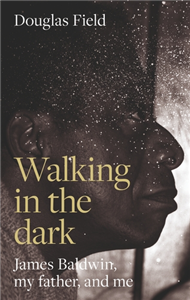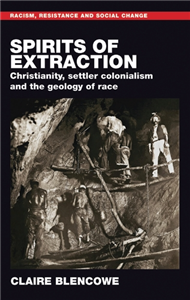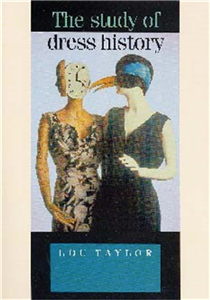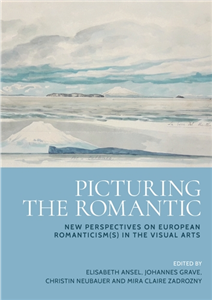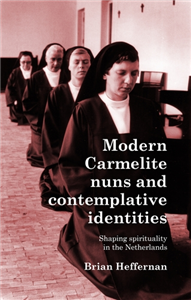Your Search Results
-
Promoted ContentNovember 2023
Envy
The secret feeling
by Bettina Schulte
Envy is a relationship drama. The other is the thorn in the flesh. The first murder in the Bible is when Cain killed Abel: out of envy. And today, influencers dazzle their followers with their enviable lives. Bettina Schulte's essay spans an arc from the gruelling agony of subjective envy to the question of its legitimate social role. And of course, it's also about jealousy as a form of envy ...
-
Promoted Content2023
The big PTAheute Handbook
Practical knowledge for the pharmacy
by Edited by Dr. Iris Milek
Already in its 3rd edition, the PTAheute handbook presents the essence of practical pharmacy knowledge and is becoming the standard work for a practical pharmacy. PTAheute authors contribute their professional experience and bundle the most important facts, in the proven manner of the trade journal PTAheute: ■ Comprehensibly prepared content facilitates putting knowledge effectively into practice. ■ Infographics help readers understand the contexts. ■ Yellow boxes provide a quick overview. ■ Pictures and graphic design increase reading pleasure. The content on multiple sclerosis or on the various aspects of Covid-19 is new to the 3rd edition. The chapters on „Antibiotics“ and „Interactions“ have been completely restructured and revised and all other content has been brought fully up to date. The PTAheute handbook – the reliable companion in everyday pharmacy life!
-
 Trusted Partner
Literature & Literary StudiesAugust 1996
Trusted Partner
Literature & Literary StudiesAugust 1996Poetaster
Ben Jonson
by Tom Cain
Set in Ancient Rome, "Poetaster" offers one of the first and most subtle statements in English of the Augustan cultural ideal. Jonson contrasts Augustus' wise rule with an English polity dominated (like the stage) by malice, intrigue and envy. This text examines these different strands so skilfully interwoven by Jonson, and argues for a reassessment of "Poetaster" as one of the most ideologically interesting of all early modern plays. The accompanying explanatory notes guide the reader through the personal and political illusions which gave the play its immediate satirical impact. ;
-
 Trusted Partner
Humanities & Social SciencesFebruary 2017
Trusted Partner
Humanities & Social SciencesFebruary 2017Conquering nature in Spain and its empire, 1750–1850
by Helen Cowie, Andrew Thompson, John M. MacKenzie
This book examines the study of natural history in the Spanish empire in the years 1750-1850. During this period, Spain made strenuous efforts to survey, inventory and exploit the natural productions of her overseas possessions, orchestrating a serries of scientific expeditions and cultivating and displaying American fauna and flora in metropolitan gardens and museums. This book assesses the cultural significance of natural history, emphasising the figurative and utilitarian value with which eighteenth-century Spaniards invested natural objects, from globetrotting elephants to three-legged chickens. It considers how the creation, legitimisation and dissemination of scientific knowledge reflected broader questions of imperial power and national identity. This book will be of particular interest to scholars and students of Spanish and Latin American History, the History of Science and Imperial Culture
-
 Trusted Partner
International relationsApril 2010
Trusted Partner
International relationsApril 2010Human Rights and the Borders of Suffering
The Promotion of Human Rights in International Politics
by Anne Brown
This book, newly available in paperback, argues for greater openness in the ways we approach human rights and international rights promotion, and in so doing brings some new understanding to old debates. Starting with the realities of abuse rather than the liberal architecture of rights, it casts human rights as a language for probing the political dimensions of suffering. Seen in this context, the predominant Western models of rights generate a substantial but also problematic and not always emancipatory array of practices. These models are far from answering the questions about the nature of political community that are raised by the systemic infliction of suffering. Rather than a simple message from 'us' to 'them', then, rights promotion is a long and difficult conversation about the relationship between political organisations and suffering. Three case studies are explored - the Tiananmen Square massacre, East Timor's violent modern history and the circumstances of indigenous Australians. The purpose of these discussions is not to elaborate on a new theory of rights, but to work towards rights practices that are more responsive to the spectrum of injury that we inflict and endure. The book is a valuable and innovative contribution to rights debates for students of international politics, political theory, and conflict resolution, as well as for those engaged in the pursuit of human rights.
-
 Trusted Partner
Biography & True StoriesNovember 2024
Trusted Partner
Biography & True StoriesNovember 2024Walking in the dark
James Baldwin, my father and I
by Douglas Field
A moving exploration of the life and work of the celebrated American writer, blending biography and memoir with literary criticism. Since James Baldwin's death in 1987, his writing - including The Fire Next Time, one of the manifestoes of the Civil Rights Movement, and Giovanni's Room, a pioneering work of gay fiction - has only grown in relevance. Douglas Field was introduced to Baldwin's essays and novels by his father, who witnessed the writer's debate with William F. Buckley at Cambridge University in 1965. In Walking in the dark, he embarks on a journey to unravel his life-long fascination and to understand why Baldwin continues to enthral us decades after his death. Tracing Baldwin's footsteps in France, the US and Switzerland, and digging into archives, Field paints an intimate portrait of the writer's life and influence. At the same time, he offers a poignant account of coming to terms with his father's Alzheimer's disease. Interweaving Baldwin's writings on family, illness, memory and place, Walking in the dark is an eloquent testament to the enduring power of great literature to illuminate our paths.
-
 Trusted Partner
2022
Trusted Partner
2022Tabu Subjects
Caught between the duty of confidentiality and the duty to speak
by Almut Roth
Why is a subject regarded as off-limits and how does one handle it? What is better kept to yourself and what is essential that you say to the person affected? Countless people are ashamed of their diseases and do not dare to talk about them in public. But how can you find out what is meant, even though it is not openly stated? This calls for sensitivity and professional expertise! Only if someone has sufficient background knowledge about a disease and its possible treatments can emerging worries and anxieties be confronted, preconceptions dispelled and existing myths refuted. This book sheds clear and concise light on 50 supposedly taboo subjects, as well as providing appropriate phrases for difficult consultations in the pharmacy!
-
 Trusted Partner
Humanities & Social SciencesMarch 2025
Trusted Partner
Humanities & Social SciencesMarch 2025Spirits of extraction
Christianity, settler colonialism and the geology of race
by Claire Blencowe
Spirits of extraction revisits the troubling history of socially reformist, ostensibly anti-racist, Christianity and its role in the expansion of the extractive industries, British imperialism, and settler colonialism. The book explores key moments in the history of Methodism and the evangelical movement. Colonial fears, and the attempt to 'civilise savages', were crucial to the movement's foundation in eighteenth-century industrialising Bristol, England. Through the culture of the Cornish mining diaspora of the nineteenth century, Methodism enmeshed with all the complexity of race and labour-structures of the British empire. At the same time, in Anishinaabewaki/Upper Canda/Ontario, Methodist missionaries laid the foundation of abusive education and racialised ideas of redemption that both enable and sacralise the mining industry. Through these histories of our present, the book theorises the relation of religion and education to racism, modernity, biopower, extractivism, and the geology of race.
-
 Trusted Partner
Humanities & Social SciencesMay 2020
Trusted Partner
Humanities & Social SciencesMay 2020A history of humanitarianism, 1755–1989
In the name of others
by Silvia Salvatici
The book traces the history of international humanitarianism from the anti-slavery movement to the end of the cold war. It is based on an extensive survey of the international literature and is retold in an original narrative that relies on a close examination of the sources. The reconstruction of humanitarianism's long history unfolds around some crucial moments and events: the colonial expansion of European countries, the two world wars and their aftermaths, the emergence of a new postcolonial order. In terms of its contents, narrative style, interpretative approach the book is aimed at a large and diverse public including: scholars who are studying and teaching humanitarianism; students who need to learn about humanitarianism as part of their training or research; operators and volunteers who are engaged in the field; non-specialist readers who are interested in the topic because of its relevance to current events.
-
 Trusted Partner
Material cultureJanuary 2002
Trusted Partner
Material cultureJanuary 2002The study of dress history
by Lou Taylor
Over the past ten years the study of dress history has finally achieved academic respectability. This book shows how the fields of dress history and dress studies are now benefitting from the adoption of new multi-disciplinary approaches and outlines the full range of these approaches which draw on material culture, ethnography, and cultural studies. Raises a series of frank and fresh issues surrounding approaches to the history of dress, including analysis of the academic gender and subject divides that have riven it in the past. Comprehensive, engaging and trenchant, this will become the benchmark volume in the study of dress history.
-
 Trusted Partner
Humanities & Social SciencesSeptember 2008
Trusted Partner
Humanities & Social SciencesSeptember 2008The culture of toleration in diverse societies
Reasonable tolerance
by Catriona McKinnon, Dario Castiglione
The idea of toleration as the appropriate response to difference has been central to liberal thought since Locke. Although the subject has been widely and variously explored, there has been reluctance to acknowledge the new meaning that current debates on toleration have when compared with those at its origins in the early modern period and with subsequent discussions about pluralism and freedom of expression. This collection starts from a clear recognition of the new terms of the debate. It recognises that a new academic consensus is slowly emerging on a view of tolerance that is reasonable in two senses. Firstly of reflecting the capacity of seeing the other's viewpoint, secondly on the relatively limited extent to which toleration can be granted. It reflects the cross-thematic and cross-disciplinary nature of such discussions, dissecting a number of debates such as liberalism and communitarianism, public and private, multiculturalism and the politics of identity, and a number of disciplines: moral, legal and political philosophy, historical and educational studies, anthropology, sociology and psychology. A group of distinguished authors explore the complexities emerging from the new debate. They scrutinise, with analytical sophistication, the philosophical foundation, the normative content and the broadly political implications of a new culture of toleration for diverse societies. Specific issues considered include the toleration of religious discrimination in employment, city life and community, social ethos, publicity, justice and reason and ethics. The book is unique in resolutely looking forward to the theoretical and practical challenges posed by commitment to a conception of toleration demanding empathy and understanding in an ever-diversifying world. ;
-
 Trusted Partner
2021
Trusted Partner
2021Micronutrient Depleters: Cholesterol-lowering Drugs
Things to know about medicines and micronutrients
by Uwe Gröber and Prof. Dr. Klaus Kisters
Elevated blood lipid levels are among the major risk factors for cardiovascular diseases. The class of substances most commonly used for lowering blood lipids is the type of cholesterol-lowering drug known as statins. Taking cholesterol-lowering drugs can lead to disruption of the coenzyme Q10 balance and muscle metabolism. In addition, statin therapy increases the need for selenium, vitamin D, omega-3 fatty acids, B vitamins and L-carnitine. This guide provides patients with important medical information about the interactions of their medicines with these micronutrients. This way, patients can optimise their treatment, reduce the side effects of their medication, and improve their quality of life!
-
 Trusted Partner
The ArtsSeptember 2025
Trusted Partner
The ArtsSeptember 2025Picturing the Romantic
New perspectives on European Romanticism(s) in the visual arts
by Elisabeth Ansel, Johannes Grave, Christin Neubauer, Mira Claire Zadrozny
European Romanticism in the visual arts has always been defined by transnational transfer processes. It is surprising that international aspects of Romantic movements have been, in contrast to literary studies, a gap in art historical research. Picturing the Romantic addresses this issue and reveals new perspectives on European Romanticism(s) in the visual arts by reconsidering the phenomenon's traditional canon, geographical dimensions and terminology and analysing various examples of the complex and heterogeneous works of Romantic painting. In sixteen original essays, renowned and early career researchers examine the question of whether to speak of several independently considered Romanticisms or one European Romanticism. They adopt a transnational perspective on Romantic art in and beyond Europe, focusing on the interconnections between the countries.
-
 Trusted Partner
Humanities & Social SciencesMay 2024
Trusted Partner
Humanities & Social SciencesMay 2024Modern Carmelite nuns and contemplative identities
Shaping spirituality in the Netherlands
by Brian Heffernan
Discalced Carmelite convents are among the most influential wellsprings of female spirituality in the Catholic tradition, as the names of Teresa of Avila, Therese of Lisieux and Edith Stein attest. Behind these 'great Carmelites' stood communities of women who developed discourses on their relationship with God and their identity as a spiritual elite in the church and society. This book looks at these discourses as formulated by Carmelites in the Netherlands, from their arrival there in 1872 up to the recent past, providing an in-depth case study of the spiritualities of modern women contemplatives. The female religious life was a transnational phenomenon, and the book draws on sources and scholarship in English, Dutch, French and German to provide insights on gendered spirituality, memory and the post-conciliar renewal of the religious life.
-
 Trusted Partner
The ArtsSeptember 2024
Trusted Partner
The ArtsSeptember 2024The renewal of post-war Manchester
Planning, architecture and the state
by Richard Brook
A compelling account of the project to transform post-war Manchester, revealing the clash between utopian vision and compromised reality. Urban renewal in Britain was thrilling in its vision, yet partial and incomplete in its implementation. For the first time, this deep study of a renewal city reveals the complex networks of actors behind physical change and stagnation in post-war Britain. Using the nested scales of region, city and case-study sites, the book explores the relationships between Whitehall legislation, its interpretation by local government planning officers and the on-the-ground impact through urban architectural projects. Each chapter highlights the connections between policy goals, global narratives and the design and construction of cities. The Cold War, decolonialisation, rising consumerism and the oil crisis all feature in a richly illustrated account of architecture and planning in post-war Manchester.
-
Health & Personal DevelopmentMarch 1905
Ginseng and Other Medicinal Plants
by A. R. Harding
This book is made up largely from the experiences of hunters and trappers who have dug "seng" and "seal" and who know much of their peculiarities, and scores are now successful growers.In adidtion to Ginseng and Golden Seal nearly 50 other medicinal plants are described--habits, range, price, uses, etc.
-
 Trusted Partner
Literature: history & criticismSeptember 2001
Trusted Partner
Literature: history & criticismSeptember 2001The Great Exhibition of 1851
by Susan Williams
The Great Exhibition of 1851 has become a touchstone for the nineteenth century. The Crystal Palace produced a commodity world, an imperial spectacle, a picture of capitalism, a liberal dream, a vision of modern life. Historians have saturated the Great Exhibition with meanings. This collection of essays exposes how meaning has been produced around the Great Exhibition. It contains a series of critical readings of the official and popular historical record of the Exhibition. Critics and historians of art, culture, design and literature have been brought together to examine the objects, the images, the documents and the fictions of 1851. Their essays explore the determined use of industrial knowledge, the contested definitions of nation and colony, and the actual control of the space of the Crystal Palace after the Great Exhibition closed. The Great Exhibition of 1851 presents new interpretations of one of the most significant exhibitions in the nineteenth century and will be essential reading for anyone studying cultural history, design history, art history and literature.
-
 Trusted Partner
Humanities & Social SciencesMarch 2020
Trusted Partner
Humanities & Social SciencesMarch 2020Toleration, power and the right to justification
by Rainer Forst, Bert van den Brink, Anthony Laden, Peter Niesen, David Owen
-
 Trusted Partner
Trusted Partner
-
 Trusted Partner
Trusted Partner











